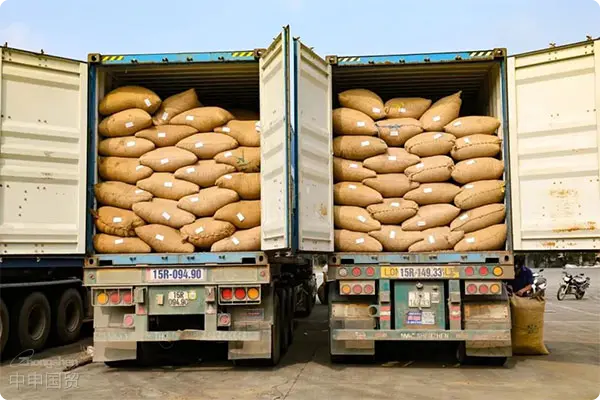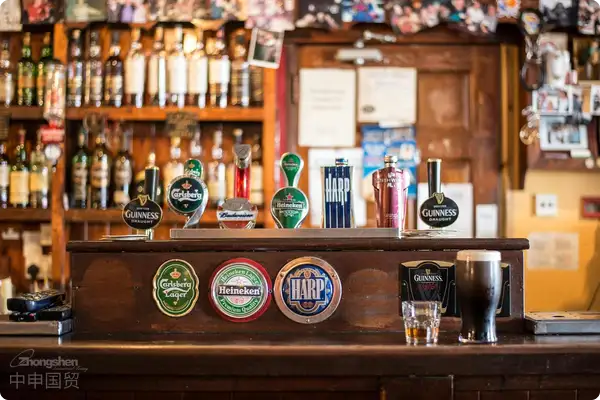- Shanghai Zhongshen International Trade Co., Ltd. - Two decades of trade agency expertise.
- Service Hotline: 139 1787 2118
The import of Chinese herbal medicines is crucial for maintaining and enhancing the international influence of traditional Chinese medicine. However, have you ever thought about what supervision measures the customs has taken to ensure the quality and safety of imported Chinese herbal medicines?
I. Establishment conditions for designated ports
First of all, not all ports are eligible to import Chinese herbal medicines. To become an import port for Chinese herbal medicines, the port must be a border port where a customs agency has been established and has the ability to supervise the import of Chinese herbal medicines. This means that the port needs to have specialized facilities and professionals who can effectively inspect and supervise the imported Chinese herbal medicines.
The National Medical Products Administration and the General Administration of Customs will conduct strict assessment and evaluation of the declared ports according to relevant requirements. Only those that pass the evaluation can obtain the approval of the State Council and become designated ports for the import of Chinese herbal medicines. These measures ensure that all imported Chinese herbal medicines enter the Chinese market through strictly supervised ports to guarantee their quality and safety.
II. Designated ports for the import of Chinese herbal medicines across the country
As of February 2024, all ports in 19 cities across the country and other specific areas have been approved as ports for the import of Chinese herbal medicines and pharmaceuticals. These cities include large cities such as Beijing, Tianjin, and Shanghai, as well as specific airports and seaports, such as Jinan Airport Port and Zhengzhou Airport Port. In addition, there are 23 border ports, such as Heihe in Heilongjiang Province and Jian in Jilin Province, which have been designated as border ports for the import of Chinese herbal medicines.
The following is a detailed list of designated ports:
Ports in municipalities directly under the Central Government and important cities:
? Beijing: As the capital of China, Beijing has multiple import ports that can handle various imported items including Chinese herbal medicines.
? Shanghai: As the economic center of China, the ports in Shanghai have advanced inspection and quarantine facilities and technologies to ensure the quality of imported Chinese herbal medicines.
? Tianjin: With a convenient sea and land transportation network, the ports in Tianjin provide good conditions for the import of Chinese herbal medicines.
? Chongqing: As an important city in the southwest region, the ports in Chongqing play an important role in promoting the import of Chinese herbal medicines in this region.
Ports in coastal cities:
? Guangzhou: Guangzhou is an important trading port in southern China, and its ports have an efficient processing capacity for the import of Chinese herbal medicines.
? Shenzhen: The ports in Shenzhen are famous for their efficient customs clearance processes and professional inspection and quarantine services.
? Fuzhou: As the capital of Fujian Province, the ports in Fuzhou support the import demand for Chinese herbal medicines in the province and surrounding areas.
? Xiamen: Xiamen is an important open - up city in China, and its ports provide a convenient channel for imported goods such as Chinese herbal medicines.
Ports in inland and other coastal cities:
? Chengdu, Wuhan: As important economic centers in the inland, the ports of these cities are crucial for the import of Chinese herbal medicines in the central and western regions.
? Dalian, Qingdao: The ports of these coastal cities have the capacity and facilities to handle large - scale imports of Chinese herbal medicines.
? Hangzhou, Ningbo: As important cities in Zhejiang Province, their ports provide import services for Chinese herbal medicines in the southeast region.
Specific areas and airport ports:
? Suzhou Industrial Park Port, Jinan Airport Port: The ports in these specific areas have professional import and processing capabilities for Chinese herbal medicines.
? Zhengzhou Airport Port, Changsha Airport Port: As important airport ports in the central region, they provide important channels for the import of Chinese herbal medicines.Air TransportationBorder ports:
? Heihe and Suifenhe ports in Heilongjiang Province, Hunchun port in Jilin Province, Pingxiang port in Guangxi Zhuang Autonomous Region, etc.: These border ports facilitate the trade of Chinese herbal medicines between China and its neighboring countries.
? Ruili and Hekou ports in Yunnan Province, Alashankou port in Xinjiang Uygur Autonomous Region, etc.: Located on the border between China and South Asia and Central Asia, they are important gateways for the import of Chinese herbal medicines.
The customs supervision of the import of Chinese herbal medicines mainly includes the following aspects:
III. Customs supervision process for the import of Chinese herbal medicines

Quarantine access:
All incoming Chinese herbal medicines must comply with the national quarantine access system, which includes product risk analysis, evaluation and review of the regulatory system, and registration of overseas production enterprises.Enterprise management:
The domestic consignor or agent of imported Chinese herbal medicines must establish a corresponding record - keeping system, including records of the entry, sales, and processing of Chinese herbal medicines, which should be kept for at least two years. In addition, overseas production enterprises also need to be registered with the General Administration of Customs.Quarantine approval:
Incoming Chinese herbal medicines need to go through the entry animal and plant quarantine approval to obtain the Peoples Republic of China Entry Animal and Plant Quarantine Permit.On - site supervision:
This includes document review and cargo inspection to ensure that all imported Chinese herbal medicines meet the requirements of laws, administrative regulations, and customs import declaration management.Laboratory testing:
For Chinese herbal medicines with doubts found during on - site quarantine, the customs will take samples and send them to the laboratory for testing.Storage and processing in designated places:
Before obtaining the quarantine certificate of conformity, Chinese herbal medicines should be stored in places recognized by the customs, and shall not be transferred, sold, or processed without the permission of the customs.Evaluation of quarantine results:
According to the quarantine results, qualified Chinese herbal medicines will be allowed to be sold or used, while unqualified ones need to be treated for pest control, returned, or destroyed.According to the quarantine results, qualified Chinese herbal medicines will be allowed to be sold or used, while unqualified ones need to be disinfected, returned or destroyed.
8、Quarantine Treatment of Means of Transport:Ensure that the means of transport and containers for transporting Chinese medicinal materials meet safety and hygiene requirements, and carry out epidemic prevention and disinfection treatment when necessary.
Through this series of strict supervision processes, the customs ensures the quality and safety of imported Chinese medicinal materials, protects the health and interests of domestic consumers, and also maintains the order of the Chinese medicine market.
Related Recommendations
Category case
Contact Us
Email: service@sh-zhongshen.com
Related Recommendations
Contact via WeChat

? 2025. All Rights Reserved. 滬ICP備2023007705號-2  PSB Record: Shanghai No.31011502009912
PSB Record: Shanghai No.31011502009912









